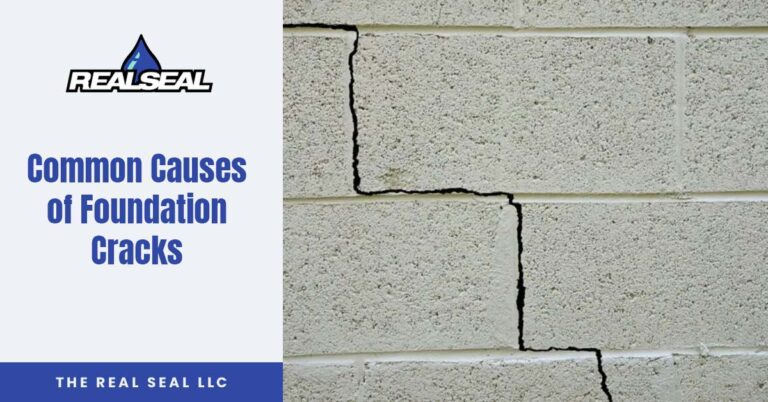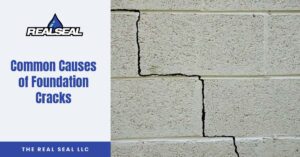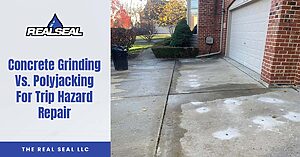Noticing a crack in your home’s foundation can be an anxiety-inducing moment. Though you might be worried that your home is about to collapse, or that your finances may collapse when you attempt to have the crack fixed, don’t panic just yet.
The first step to understanding and repairing cracks in foundations is discerning what may have caused the cracks in the first place. Careful observation of the cracks’ characteristics and your home’s location will help determine what might have caused them, and what steps you should take next to protect the base of your home.
Some common causes of foundation cracks include:
Expansive Soil
Soil that expands when wet can push against the sides of your foundation. This added pressure can create horizontal cracks, and can even bend and bow the walls of your basement.
Tree Roots and Transpiration
Tree roots themselves can push cracks into a basement wall, but they more often cause cracks by withdrawing moisture from the soil beneath the foundation, creating an uneven and cracked base.
Settlement
When loose soil is used underneath a foundation, over time it moves and adjusts to the weight above. This settling causes vertical or stair-step cracks, and is often a result of poor engineering. Uneven settlement can result in serious structural problems.
Foundation Rotation
Sometimes, foundations lean in one direction or another or twist at the corners, both of which are called rotation.
Frost Uplifting/Heaving
In cold climates, wet soil expands and shrinks as it freezes and thaws, which can upheave and crack a foundation from underneath.
Poor Reinforcement
Concrete walls without enough rebar are more likely to crack and crumble.
Poor Concrete Mix
Concrete that is not properly mixed or is just of bad quality can create structural problems over time.
Engineering Failures
Building a proper foundation takes many careful calculations and measurements. If something is not properly planned, a foundation will not be able to properly support a structure. Foundation repair can only do so much to overcome bad initial engineering.
Natural Disasters
Massive flooding, landslides, earthquakes, and more can all cause minor or major damage to a foundation. In dramatic cases, repairing foundation cracks from natural disaster might not be enough to save a structure.
Plumbing Problems
Basement water leaks from old or burst pipes allow moisture to develop around and beneath foundation walls, which can sometimes lead to cracks.
Sometimes, minor cracks are nothing to worry about. Thin hairline cracks are sometimes just a quirk of an older building. However, other types of foundation cracks are concerning and should be inspected and mended quickly. Repairing cracks in foundations should be a homeowner’s priority, especially if you know that your home might be prone to one of the above environmental or engineering problems.
Remember that splits wider than 1/4 of an inch wide should be evaluated by an expert in basement crack repair. Stair-step cracks in blocks or bricks are also cause for concern, and homeowners should take measures to fix the problem before it gets worse. Repairing cracks in foundations can protect and support your home’s structure for years to come.






